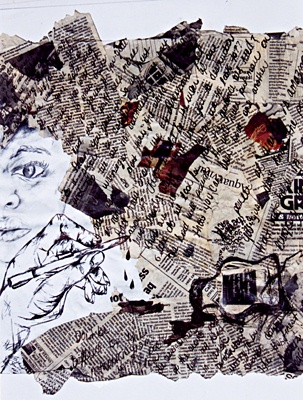All Nonfiction
- Bullying
- Books
- Academic
- Author Interviews
- Celebrity interviews
- College Articles
- College Essays
- Educator of the Year
- Heroes
- Interviews
- Memoir
- Personal Experience
- Sports
- Travel & Culture
All Opinions
- Bullying
- Current Events / Politics
- Discrimination
- Drugs / Alcohol / Smoking
- Entertainment / Celebrities
- Environment
- Love / Relationships
- Movies / Music / TV
- Pop Culture / Trends
- School / College
- Social Issues / Civics
- Spirituality / Religion
- Sports / Hobbies
All Hot Topics
- Bullying
- Community Service
- Environment
- Health
- Letters to the Editor
- Pride & Prejudice
- What Matters
- Back
Summer Guide
- Program Links
- Program Reviews
- Back
College Guide
- College Links
- College Reviews
- College Essays
- College Articles
- Back
The Language of Learning MAG
The English language unites people from all continents and nations. It is the language most commonly learned by people in other countries. Its influence makes it something of a sociological and human phenomenon. And I am so proud to be able to speak it, and speak it well.
My native language is Russian, and I spoke it exclusively until age four. Russian uses the Cyrillic alphabet, which has some difficult sounds to pronounce, and its grammar is a hassle to learn. Therefore, I always prided myself on being able to speak, read, and write Russian better than other kids. When I had to learn English in preschool, I caught on very quickly and had little accent. My life might be far less fulfilling if I were not able to express myself so well.
Many people joke that English is a crazy language, and they are not wrong. After all, we have homophones, rhyming discrepancies, silent letters, dialects, borrowed words – you name it. This did not faze me, however. Growing up, I could never understand why other kids had so much trouble distinguishing between they’re, their, and there, or you’re and your. Maybe I owe this to my memory, maybe to my ability for communication. Either way, English became my default language, the one I think in, love in, live in.
Fast forward to middle school, where I learned Spanish. Lo and behold, I couldn’t fathom why my peers couldn’t remember simple article usage and conjugations. I breezed through it all with only small confusions here and there, nothing a little studying couldn’t fix. Some say an amazing teacher can make you love a subject, but in this case my teachers were not extraordinary. I loved Spanish because I could connect its grammar, syntax, and vocabulary with that of English and even Russian. For this reason, I never worried about tests, and I almost always aced them.
Now we get to the latest part of my journey; I am in eleventh grade in AP Spanish. Oh, how the tables have turned since the simple days of the preterite and future tense. AP Spanish is one big linguistic minefield. I began the year thinking I knew Spanish, but soon I realized I didn’t, and this was evidenced in my continuous mistakes and inability to remember things. Nevertheless, I still excel in the class because it’s what I do best. AP Spanish is the bridge from proficiency to fluency, and I’m determined to come out of it with the linguistic agility of a native speaker.
Speaking and writing in everyday life is the basis of having beliefs and viewpoints, and that is what makes a person who they are. I would describe my voice as low and even, but full of inflections and interjections. It is easy to fall into the trap of using crutch words such as like, uh, um, literally, sort of, kind of, but I refrain from this as much as I can because I know they take away from my point and make me harder to understand. I try not to be too nasal or squeaky either; I talk the way I would want others to talk to me. I find that having a “poker voice” helps hide my true emotions, even though I am not usually one to hide my emotions.
Inflection, interjections, and figures of speech make my words unique; I can make my word choice reveal what I’m feeling. Word choice is powerful because I can use it to convey that I am excited or disappointed, bitter or enamored. Since we all have emotions, it is critical that we are able to find the right words to convey them, in multiple languages, if you will.

Similar Articles
JOIN THE DISCUSSION
This article has 0 comments.

I was looking at personal writing prompts and this just hit home for me. I am quite well versed with words and I hope this will inspire people to use their words more creatively and maybe even learn languages.